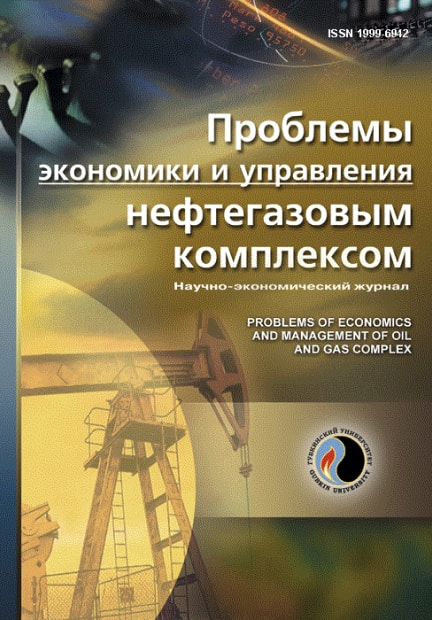Comparison of the convergency of energy and carbon output dynamic series of the world's macro-regional economies
UDC: 338.2
DOI: 10.33285/1999-6942-2022-9(213)-42-47
Authors:
PROVORNAYA IRINA V. 1,2
1,2,
FILIMONOVA IRINA V. 1,2
1,2,
NEMOV VASILY YU. 1,2
1,2
1 Trofimuk Institute of Petroleum Geology and Geophysics SB RAS, Novosibirsk, Russia
2 Novosibirsk State University, Novosibirsk, Russia
Keywords: energy output of the economy, carbon output of GDP, convergence, convergence, macro-regions, countries of the world, Kyoto Protocol, Paris Agreement
Annotation:
The article studies the dynamics of energy and carbon output of the countries’ economies. The general tendencies of their change are revealed based on the basis of using methodological approaches to the theory of convergence. It is shown that the intensity of reducing the economy’s energy output in the developed countries is significantly inferior to the intensity of the developing countries. At the same time, presence of beta-convergence of the economy’s output dynamic series is revealed in nine out of 10 macro-regions, the absence of beta-convergence in the period under consideration was observed only in the Middle East. Also, the presence of beta- and sigma-convergences for the dynamic series of the carbon output of the countries’ economies was determined, which indicates a in interregional inequality reduction by this indicator due to the intensification of measures to decarbonize the economy, taken at the state level in most macro-regions. The carbon output convergence acceleration during the time period of the Kyoto Protocol and the Paris Agreement (2008–2020) action compared to the time-period of the Kyoto Protocol action (1990–2007) was revealed.
Bibliography:
1. Cornillie J., Fankhauser S. The energy intensity of transition countries. – London: European Bank for Reconstruction and Development, 2002. – 26 p.
2. Ming-Chung Chang. Energy intensity, target level of energy intensity, and room for improvement in energy intensity: An application to the study of regions in the EU // Energy Policy. – 2014. – Vol. 67. – P. 648–655. – DOI: 10.1016/j.enpol.2013.11.051
3. Energy Efficiency: A Recipe for Success. – World Energy Council, 2010. – 170 p.
4. Uglerodoemkost' elektroenergii v mire i Rossii // Energet. byul. – 2019. – № 72. – URL: https://ac.gov.ru/files/publication/a/22245.pdf
5. Sala-i-Martin X.X. The classical approach to convergence analysis // Economic J. – 1996. – Vol. 106, Issue 437. – P. 1019–1036. – DOI: 10.2307/2235375
6. Kolomak E.A. Modeli regional'noy politiki: konvergentsiya i divergentsiya // Vestn. NGU. Ser.: Sotsial'no-ekonomicheskie nauki. – 2009. – T. 9, № 1. – S. 113–120.
7. Quah D.T. Empirical cross-section dynamics in economic growth // European Economic Review. – 1993. – Vol. 37, Issue 2-3. – P. 426–434. – DOI: 10.1016/0014-2921(93)90031-5
8. Faktory ekonomicheskogo rosta v regionakh RF / S. Drobyshevskiy, O. Lugovoy, E. Astaf'eva [i dr.]. – M.: MAKS Press, 2005. – 277 s.
9. CO2 emissions: Global Energy Review 2021 / IEA. – URL: https://www.iea.org/reports/global-energy-review-2021/co2-emissions (data obrashcheniya 05.04.2022).
10. Kiotskiy protokol k Ramochnoy konventsii Organizatsii Ob"edinennykh Natsiy ob izmenenii klimata. – URL: https://www.un.org/ru/documents/decl_conv/conventions/kyoto.shtml (data obrashcheniya 05.04.2022).
11. Parizhskoe soglashenie ob izmenenii klimata – itogovoy dokument 21-y Konferentsii storon Ramochnoy konventsii Organizatsii Ob"edinennykh Natsiy ob izmenenii klimata (RKOONIK). – URL: https://unfccc.int/sites/default/files/russian_paris_agreement.pdf (data obrashcheniya 05.04.2022).

